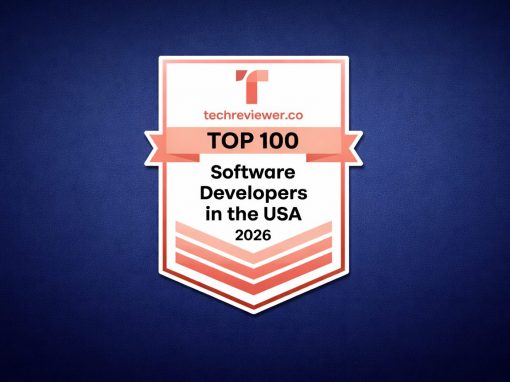Table of Contents
In Episode 5 of our AI Innovations podcast series, Scopic COO Mladen Lazic joins John Stamper for a grounded, insider conversation on how AI is transforming the way software is built. They talk all about vibe coding, developer roles, team dynamics, and business impact.
Whether you’re exploring AI tools or trying to understand their real potential and limitations, this episode offers a clear-eyed look at what’s changing (and what still requires human expertise).
What Is Vibe Coding?
The episode kicks off by demystifying the term vibe coding, which refers to using AI to generate code based on prompts from a human user.
“Vibe coding… pretty much describes an approach where non-technical people are using AI to code. What we have realized is that that’s not really a possibility right now.”
While it sounds like a futuristic shortcut, Mladen explains why this method is not yet ready to replace traditional development. Instead, it works best when combined with skilled engineering oversight to ensure the results are scalable, secure, and maintainable.
AI’s Impact on Developers and Teams
One of the major themes of the episode is how AI is changing the day-to-day work of engineers:
“Developers are all going to become reviewers more than coders.”
Rather than making developers obsolete, AI is shifting their roles toward:
- Reviewing and refining AI-generated code
- Asking better prompts and giving clearer instructions
- Ensuring long-term maintainability
“People should expect productivity. People should expect lower costs. But they should not expect miracles at this point just yet.”
Speed vs. Strategy: What Businesses Need to Know
AI development and tools might reduce dev time by up to 70-80% in some cases, but that doesn’t mean they reduce the need for expertise.
“It feels that you can do much more and that you don’t really need support from engineers… but very soon after you start using these tools, it becomes clear that you can’t do it without previous experience.”
Mladen emphasizes the need for businesses to pair AI efficiency with expert guidance – especially in areas like:
- Architecture and scalability
- Security and compliance
- Long-term maintenance
New Business Models, New Challenges
From a business model perspective, AI tools pose both opportunity and risk:
- Product companies can ship faster, save on dev time, and reinvest those gains
- Service-based agencies must adapt to faster turnaround expectations and find new ways to add value
Scopic is meeting this shift head-on by becoming a strategic partner, helping clients:
- Reach MVP faster
- Prototype with less friction
- Build sustainable, scalable systems
Key Takeaway: Handle with Care
The main message? AI is powerful – but not autonomous.
“You need to guide them in a way that the LLM builds software that is secure, scalable, and everything else. It will not do that by itself.”
AI might make development more accessible, but without engineering expertise, it’s easy to create unstable, bloated, or unmaintainable products.
Watch Episode 5 Now
Catch the full conversation between Mladen Lazic and John Stamper on YouTube:

About AI Innovations Podcast Series EP 5 Overview – How Vibe Coding and AI Are Changing Software Development
This article was authored by Angel Poghosyan, Marketing Specialist at Scopic.
Scopic provides quality and informative content, powered by our deep-rooted expertise in software development. Our team of content writers and experts have great knowledge in the latest software technologies, allowing them to break down even the most complex topics in the field. They also know how to tackle topics from a wide range of industries, capture their essence, and deliver valuable content across all digital platforms.
Note: This blog’s images are sourced from Freepik.





